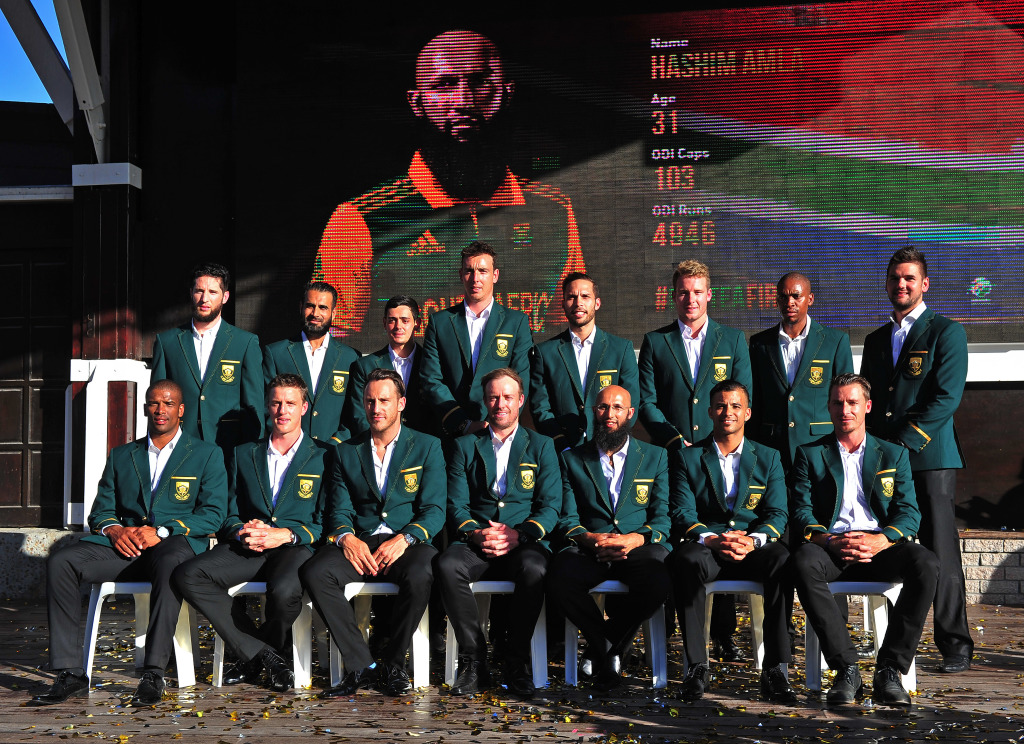The Proteas must top their pool to ensure a relatively easier route to the World Cup semi-finals.
South Africa has a long history of success in World Cup preliminary matches. Since they returned to international cricket in 1992, they have won 70% of these games, and advanced to the next round at all global tournaments bar one (2003).
The problem, however, has arisen when the Proteas have reached the knockout stage of the competition. They have, to date, never won a World Cup play-off match.
Will 2015 witness an end to the trend? Will AB de Villiers and this group of Proteas succeed where so many other South African teams have failed?
Perhaps it is too soon to be asking these questions. Perhaps the Proteas should first focus on winning all of their pool matches. If they succeed in doing so, they will be pit against a less formidable opponent in the quarter-final. Topping Pool B should also ensure that the Proteas avoid one of the tournament’s hosts (and incidentally, two of the favourites), Australia and New Zealand.
Pool B will consist of South Africa, India, Pakistan, West Indies, Zimbabwe, Ireland, and the United Arab Emirates. The Proteas should have no problem advancing to the next round, given that the top four of each group will progress to the knockout stage. One would expect the big Test playing nations, namely South Africa, India, Pakistan, and West Indies to feature in the quarter-finals.
But the Proteas need to do more than just qualify. They will be expected to beat minnows such as Zimbabwe, who they will play this Sunday in Hamilton, Ireland, and the UAE. On the basis of the recently concluded series in South Africa, the Proteas will be expected to beat the West Indies. The matches that will determine whether the Proteas top Pool B or not will be those against India and Pakistan.
The Proteas beat India convincingly when the latter last toured South Africa, and it will encourage them to know that conditions in Australia (the game against India will be played in Melbourne) will be similar to those in South Africa. The Proteas’ success against Pakistan over the past few years, however, has been mixed. Nevertheless, De Villiers and company should view these games as crucial to their campaign. These big matches will reveal whether this Proteas’ side has the mettle to go further in the tournament.
Topping the group is a necessary step towards success. It may not install the Proteas as favourites for the title, but it will ensure that they have a less demanding quarter-final. And if they manage to win that play-off and shrug the gorilla from their collective backs, we may see them playing to their potential in a semi-final, and possibly even in the final.
Of course, should the Proteas lose to India and Pakistan, and possibly to any other Pool B opponent, their knockout task will be significantly tougher. And as any South African will tell you, it will be tough enough without any added pressure.
In the scenario where the Proteas scrape through to the quarter-finals, they are likely to pitted against one of the hosts. And in that scenario, a South African team low in confidence may be susceptible to the pressures of old, and may make an early exit once again. And so the existing perception will be perpetuated for another four years.
South Africa’s play-off assault starts now, in the pool stages. They need to win the big games and top Pool B. This will place them in a position to end their losing streak in World Cup play-offs.







